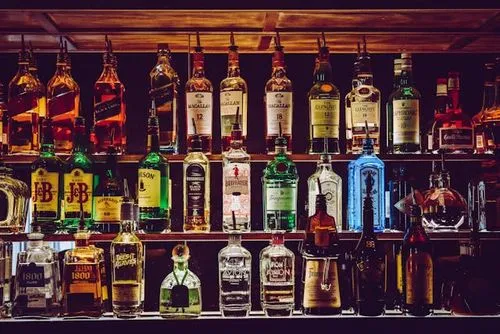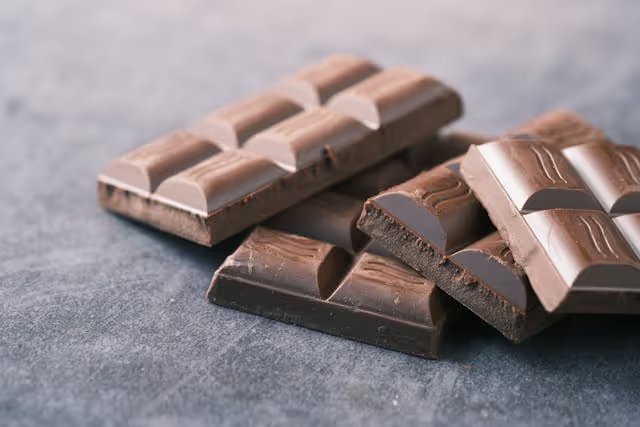
Night Sweats and Alcohol
Night sweats, characterized by excessive sweating during sleep, can be a discomforting and disruptive experience. While there can be various causes for night sweats, alcohol consumption is one factor that has been associated with this condition. In this section, we will delve into understanding night sweats and explore the relationship between alcohol and night sweats.
Understanding Night Sweats
Night sweats refer to episodes of excessive sweating that occur during sleep, often leading to dampened bedclothes and a feeling of discomfort. While occasional night sweats can be considered normal, persistent and severe night sweats may indicate an underlying issue that requires attention.
Night sweats can be caused by a range of factors such as hormonal imbalances, certain medications, infections, and medical conditions. Identifying the root cause is essential in addressing the issue effectively.
Exploring the Relationship Between Alcohol and Night Sweats
Alcohol consumption has been known to trigger night sweats in some individuals. When alcohol is consumed, it can cause blood vessels to dilate and increase body temperature. This can lead to excessive sweating during sleep, resulting in night sweats.
Moreover, alcohol can disrupt the body’s natural thermoregulation process, causing fluctuations in body temperature. This can further contribute to night sweats and disturb sleep patterns.
It’s important to note that the relationship between alcohol and night sweats can vary from person to person. Some individuals may experience night sweats after consuming even small amounts of alcohol, while others may not be affected at all. Factors such as overall health, alcohol tolerance, and individual differences play a role in the manifestation of night sweats.
Understanding the connection between alcohol and night sweats is crucial for individuals who experience this issue. By recognizing the potential impact of alcohol on night sweats, individuals can make informed decisions regarding their alcohol consumption and take appropriate steps to manage or minimize night sweats.
In the following sections, we will explore the causes of night sweats in more detail and discuss effective management strategies and treatment options for this condition.

Causes of Night Sweats
Night sweats can be attributed to various factors, including alcohol consumption. Understanding how alcohol impacts the body can shed light on how it can contribute to night sweats.
Alcohol’s Impact on the Body
Alcohol affects the body in several ways, including its impact on the nervous system and hormone regulation. When alcohol is consumed, it can lead to an increase in body temperature and dilation of blood vessels, causing a sensation of warmth. This physiological response is known as vasodilation.
Furthermore, alcohol can disrupt the normal functioning of the hypothalamus, a part of the brain responsible for regulating body temperature. The hypothalamus plays a crucial role in maintaining a balanced body temperature, but alcohol can interfere with its ability to do so effectively.
How Alcohol Consumption Can Lead to Night Sweats
Night sweats can occur as a result of alcohol consumption due to the following reasons:
- Hormonal Changes: Alcohol consumption can disrupt the normal secretion of hormones, including those involved in regulating body temperature. This hormonal imbalance can lead to increased perspiration during sleep, causing night sweats.
- Increased Heart Rate: Alcohol can elevate heart rate and blood pressure, which can lead to increased body heat. This rise in body temperature can trigger night sweats as the body attempts to cool down.
- Dehydration: Alcohol is a diuretic, meaning it increases urine production and can result in dehydration. Dehydration can disrupt the body’s natural cooling mechanisms, leading to excessive sweating during sleep.
It’s important to note that not everyone who consumes alcohol will experience night sweats. Individual sensitivity to alcohol and the amount consumed can vary. Additionally, those who already experience night sweats due to other factors may be more susceptible to alcohol-induced night sweats.
Understanding the causes of night sweats related to alcohol consumption is the first step in effectively managing and addressing this issue. Making informed decisions about alcohol consumption and seeking medical advice if night sweats become frequent or severe are essential for finding appropriate solutions.

Effects of Night Sweats
Night sweats can have various effects on an individual’s well-being, particularly in terms of sleep patterns and overall health. Understanding these effects is crucial for addressing the underlying causes and seeking appropriate treatment.
Disruption of Sleep Patterns
Night sweats can significantly disrupt sleep patterns, leading to poor sleep quality and daytime fatigue. When an individual experiences night sweats, they may wake up multiple times during the night, drenched in sweat. This interruption in sleep can prevent them from entering deep, restorative sleep stages, resulting in feelings of grogginess and exhaustion the next day.
To illustrate the impact of night sweats on sleep, consider the following table:
Effects of Night Sweats on Sleep
Frequent waking up during the night
Difficulty falling back asleep
Reduced total sleep duration
Disrupted sleep stages
Daytime fatigue and tiredness
It is important to address night sweats to restore healthy sleep patterns and improve overall quality of life.
Impact on Overall Health
Night sweats can also have broader implications for an individual’s overall health. Excessive sweating during the night can lead to dehydration, which can cause various health issues such as dry mouth, dizziness, and fatigue.
Moreover, night sweats can be a symptom of an underlying medical condition, such as infections, hormonal imbalances, or certain medications. Identifying and addressing these underlying causes is crucial for managing night sweats and maintaining good health.
To highlight the impact of night sweats on overall health, consider the following table:
Potential Health Implications of Night Sweats
Dehydration
Electrolyte imbalances
Increased risk of infections
Hormonal disruptions
Negative impact on mental well-being
If night sweats persist or are accompanied by other concerning symptoms, it is essential to seek medical advice to identify any underlying health conditions and receive appropriate treatment.
Understanding the effects of night sweats, both on sleep patterns and overall health, can help individuals recognize the importance of addressing this issue. By implementing lifestyle changes, seeking medical advice, and exploring appropriate treatment options, individuals can alleviate night sweats and improve their well-being.
Managing Night Sweats
When it comes to managing night sweats, there are various approaches that can help reduce their frequency and intensity. Making certain lifestyle changes and seeking medical advice for severe night sweats can be effective in addressing this condition.
Lifestyle Changes to Reduce Night Sweats
Making adjustments to your lifestyle can play a significant role in reducing night sweats associated with alcohol consumption. Here are some lifestyle changes that may help:
- Moderate Alcohol Consumption: Limiting or moderating your alcohol intake can be beneficial in managing night sweats. Reducing alcohol consumption may help regulate body temperature and minimize the occurrence of night sweats.
- Hydration: Staying adequately hydrated is important for overall health and may help alleviate night sweats. Drinking enough water throughout the day can help maintain hydration levels and potentially reduce the intensity of night sweats.
- Cool Sleeping Environment: Creating a cool sleeping environment can help manage night sweats. Keep your bedroom well-ventilated, use lightweight and breathable bedding materials, and consider using a fan or air conditioning to maintain a comfortable temperature.
- Dietary Considerations: Certain foods and beverages, such as spicy foods and caffeine, can trigger night sweats in some individuals. Paying attention to your diet and avoiding potential triggers may help reduce the frequency of night sweats.
Seeking Medical Advice for Severe Night Sweats
If lifestyle changes do not significantly alleviate night sweats or if they persist and severely impact your quality of life, it is important to seek medical advice. A healthcare professional can help identify any underlying medical conditions that may be contributing to night sweats and recommend appropriate treatment options.
Medical interventions for severe night sweats may include:
- Hormone Replacement Therapy (HRT): For individuals going through menopause or experiencing hormonal imbalances, HRT may be recommended to help manage night sweats and other related symptoms.
- Medication: In certain cases, medication may be prescribed to manage night sweats. This could include medications that address hormonal imbalances or medications specifically designed to control excessive sweating.
It’s essential to consult with a healthcare professional who can evaluate your symptoms, medical history, and overall health to determine the most appropriate course of action. They will be able to provide personalized guidance and recommend the best treatment options for your specific situation.
By implementing lifestyle changes and seeking medical advice when necessary, individuals experiencing night sweats can take steps towards managing this condition and improving their overall well-being.
Treatment Options
When it comes to addressing night sweats related to alcohol consumption, there are various treatment options available. These treatment options focus on addressing underlying issues and implementing strategies to minimize night sweats. Let’s explore these options in more detail.
Addressing Underlying Issues
To effectively treat night sweats related to alcohol consumption, it’s important to address the underlying issues that may be contributing to this condition. Consider the following:
- Reducing Alcohol Consumption: One of the primary steps in treating night sweats associated with alcohol is to reduce or eliminate alcohol consumption. This can help alleviate the symptoms and minimize the frequency of night sweats.
- Identifying Triggers: Identify any specific triggers that may be causing or exacerbating your night sweats. These triggers can include certain types of alcohol, specific drinking patterns, or even the combination of alcohol with other factors such as medications or spicy foods.
- Managing Stress: Stress can contribute to night sweats. Implement stress management techniques such as exercise, meditation, or therapy to help reduce overall stress levels and potentially alleviate night sweats.
Implementing Strategies to Minimize Night Sweats
In addition to addressing underlying issues, there are strategies you can implement to minimize night sweats associated with alcohol consumption. Consider the following:
- Hydration: Staying adequately hydrated can help regulate body temperature and potentially reduce the occurrence of night sweats. Drink plenty of water throughout the day, especially if you consume alcohol.
- Cool Sleeping Environment: Create a cool and comfortable sleeping environment by keeping the room temperature lower and using breathable bedding materials. This can help regulate body temperature and reduce night sweats.
- Wicking Fabrics: Opt for sleepwear made from moisture-wicking fabrics that can help draw sweat away from the body and keep you dry and comfortable during the night.
- Avoid Triggers: Identify and avoid any specific triggers that may contribute to night sweats. This can include avoiding alcohol consumption before bedtime or opting for lower-alcohol beverages.
- Consulting a Healthcare Professional: If your night sweats persist or significantly impact your quality of life, it’s essential to seek medical advice. A healthcare professional can provide further evaluation, diagnose any underlying conditions, and recommend appropriate treatment options.
By addressing underlying issues and implementing strategies to minimize night sweats, individuals experiencing night sweats related to alcohol consumption can take steps towards finding relief and improving their overall sleep quality. These strategies may include reducing alcohol intake, especially before bedtime, staying hydrated throughout the day, and maintaining a cool sleeping environment.
Additionally, practicing good sleep hygiene, such as establishing a consistent sleep schedule and avoiding screens before bed, can contribute to better sleep quality. Some people find that wearing moisture-wicking sleepwear or using breathable bedding materials can help manage night sweats more effectively.
It’s also worth noting that alcohol-related night sweats may be a sign of alcohol dependence or other health issues. If night sweats persist or worsen, it may be beneficial to evaluate one’s relationship with alcohol and consider cutting back or seeking support from addiction specialists.
It’s important to remember that individual experiences may vary, and what works for one person may not work for another. Consulting a healthcare professional is always recommended for personalized guidance and treatment. They can help rule out any underlying medical conditions that may be contributing to night sweats and provide tailored advice based on an individual’s specific situation and health history.
Sources
https://www.priorygroup.com/blog/alcohol-sweats
https://www.medicalnewstoday.com/articles/324104
https://www.healthline.com/health/night-sweats-and-alcohol




